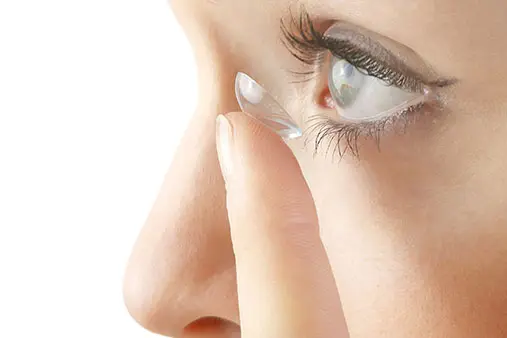Let’s face it, we’re all guilty of believing a number of things that our parents told us while growing up. In fact, we’ll probably end up telling our kids the same things! But when it comes to eye care, there are a wealth of “facts” that we hold as truths, even to this day. So at Feel Good Contact Lenses, we thought that we’d put together a list of some false, yet still some of the most widely believed, facts about our eyes and how we should use them.
Reading in dim light is bad for your eyes
Many people have been brought up believing that reading in a dim light can hurt your eyes. However, little do they know that it actually does not cause any damage... it only makes your eyes feel more tired. While it is much easier, and therefore much more enjoyable, to read in a well-lit scenario, you won’t do any harm to your eyes if you use a torch to read or if you are going “old-school” and reading by candlelight.
The wrong prescription can cause eye damage
It is commonly believed that wearing contact lenses with an incorrect prescription, or failing to use contacts at all, can cause harm to your eyes. In actual fact, there are zero negative effects on your sight. True, your eyes will become tired more easily, and can even feel strained at times, however wearing the wrong contacts won’t ever make your sight any worse. Having said this, children under the age of eight could still be at risk and should take care to be wearing the right prescription so as to avoid developing lazy eye syndrome.
Sitting too close to the TV is bad for children
This has to be the one that we’ve all heard of – “don’t sit too close to the screen or you’ll have square eyes!”. In actual fact, however, children have a much greater ability to focus on things close to their eyes than adults do, and without straining their eyes. Indeed, the only concern that parents should have is that it could be a sign of the child being short-sighted. In this instance, it never hurts to bring your child in for an eye test.

Using computers can damage your eyes
After a long, hard day at the office of staring at computers, sometimes our eyes feel dry and a little bit irritable. However, the popular belief that the computer screens themselves are harmful to our eyes is actually false. Rather, it is your reduced blinking rate that causes discomfort for your eyes. Forgetting to blink, while you are concentrating hard on a screen, means that your eyes are not being hydrated sufficiently. As we understand the importance of computers in the workplace, and the pressures of many modern day jobs, we recommend keeping some eye drops at your desk in case your eyes start to dry out.
Eye problems cause learning difficulties
Often when children have trouble with maths or with reading, they are referred to as having learning problems. Many people think that these learning problems stem from issues with the children's eyesight; however, there is no strong evidence to support this. There is also no evidence that suggests that eye exercises have any influence on curing learning problems. However, if a child is having problems with reading, they should have an eye test to make sure the problem is not merely sight-related.

The team at Feel Good Contact Lenses hope that you have found this post educational, and perhaps even enlightening, as we continue to deliver you the most accurate eye care advice around. Myths are made to be debunked and, in the case of eyes, we think our myth-busting has been a great success!

















